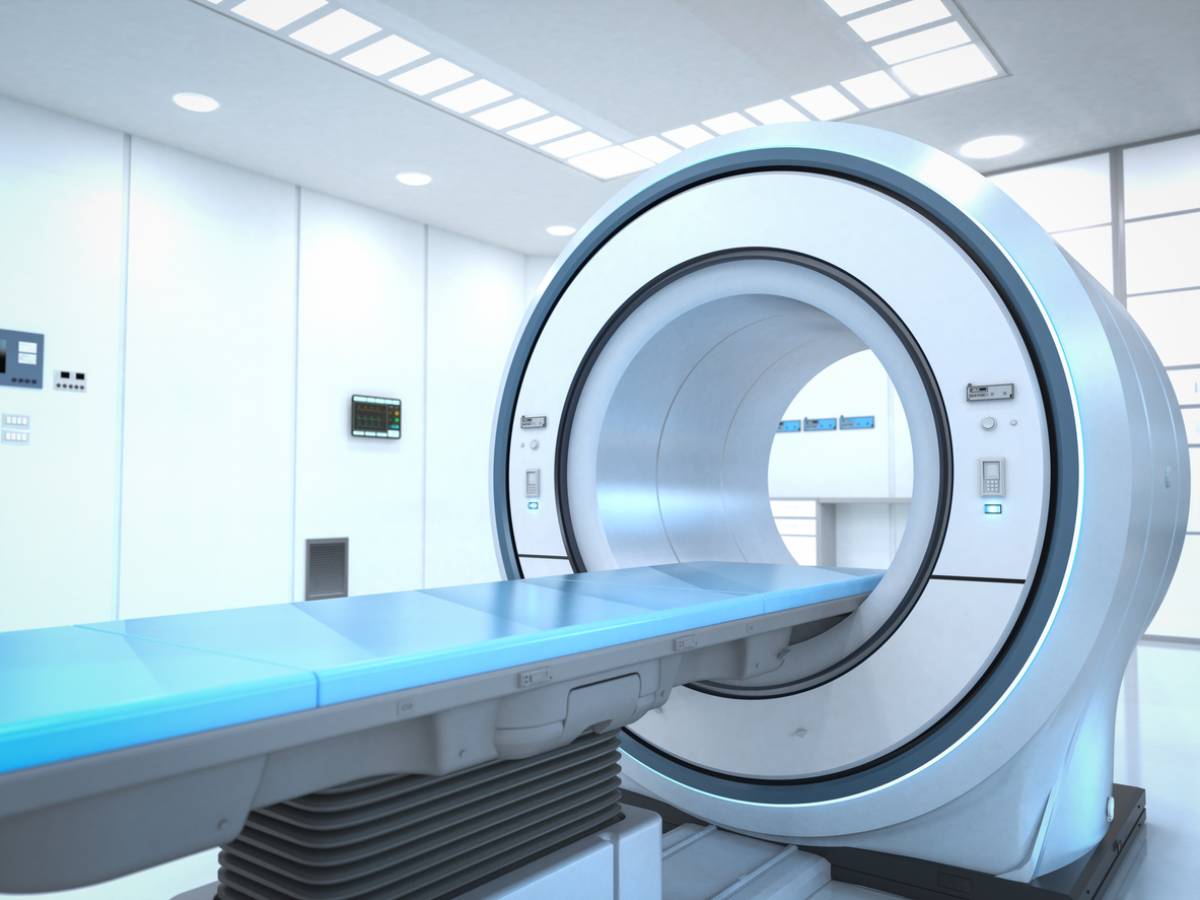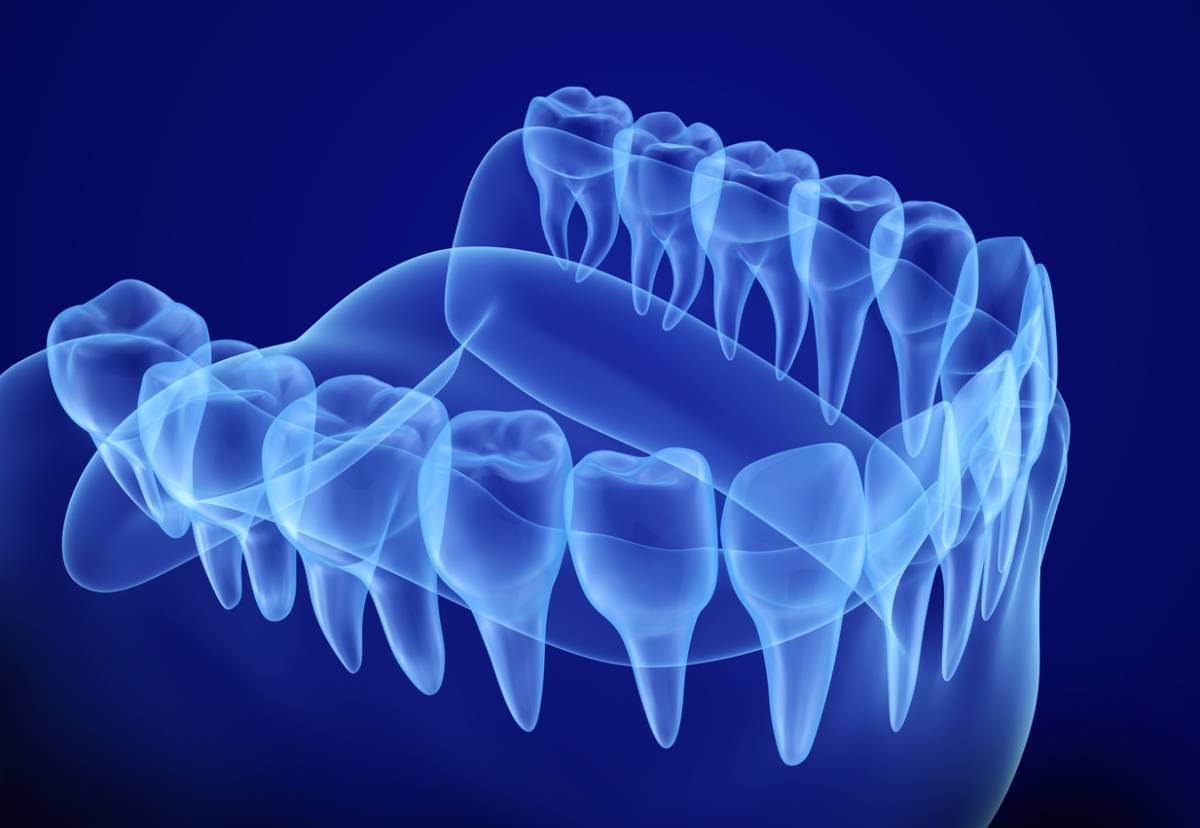Yes, an MRI can be performed on patients with dental crowns. The procedure is generally safe for individuals with these dental restorations.
Magnetic Resonance Imaging (MRI) is a non-invasive diagnostic tool widely used to visualize detailed internal structures of the body. For patients with dental crowns, concerns often arise about the compatibility of their restorations with the strong magnetic field of the MRI machine.
Typically, dental crowns are made from materials that are either non-magnetic or weakly magnetic, meaning they do not pose a risk during an MRI scan. It’s crucial for patients to inform the radiologist about their dental crowns to ensure proper safety measures. The advancement of MRI technology has minimized the potential for crown displacement or image distortion, reassuring patients that their dental work will not interfere with the clarity of their diagnostic results.

Credit: m.youtube.com
Introduction To Mri Safety With Dental Crowns
When a doctor suggests an MRI scan, patients with dental crowns may wonder about safety. MRI machines use powerful magnets, which raise questions for patients with metal in their mouths. This section explores MRI compatibility with dental crowns. Patients will learn what they need to know before the scan.
The Question Of Compatibility
Are dental crowns and MRI machines friends? Most dental crowns, including those made of porcelain, ceramic, or composite materials, are MRI-safe. Some crowns have metal, which may cause concerns. Yet, most modern metals used in dentistry are MRI-compatible. It’s important to tell your doctor about your crowns before the scan.
General Concerns With Metal And Mri
- Metal objects can be dangerous in MRI rooms.
- MRI magnets may pull on metal, causing discomfort.
- Image distortion can happen near metal.
- Not all metals are a problem. Titanium crowns usually pose no risk.
Ensuring MRI Safety With Dental Crowns
Pre-scan evaluation is key. Dentists can provide crown details. This helps radiologists prepare. Patients should share their dental history. Special protocols can reduce risks. In rare cases, an alternative imaging method may be suggested. Safety comes first in every scenario.
Understanding Dental Crowns
Dental crowns help injured teeth regain their natural structure and functionality. They also act as a protective cap for teeth. Dentists recommend crowns for various reasons, such as protecting weak teeth or restoring broken ones.
Materials Used In Dental Crowns
Dental crowns come in different materials, each with unique benefits:
- Porcelain: Mimics natural tooth color.
- Ceramic: Good for front teeth due to aesthetics.
- Metal alloys: Offer strength and durability.
- Gold: Known for longevity and less tooth removal.
- Composite resin: Less expensive but more prone to wear.
- Porcelain fused to metal: Combines aesthetics with strength.
How Crowns Interact With Magnetic Fields
Wondering if dental crowns affect MRI scans? The answer is mostly no.
Non-magnetic materials like porcelain or ceramic are MRI-safe. They don’t interact with magnetic fields. This means they won’t affect your MRI results.
Metal crowns could pose some issues. Metals like iron or nickel may distort MRI images. Gold and metal alloys used in crowns usually have low magnetic susceptibility, so they are less likely to cause problems during an MRI.
It’s important to inform your doctor about your dental crowns before an MRI. They can assess if the material will interfere with the scan.
The Nature Of MRI Technology
Magnetic Resonance Imaging, or MRI, is a powerful medical tool. It lets doctors see inside the body without surgery. This technology uses strong magnets and radio waves to create detailed images of organs and tissues.
Basics Of Magnetic Resonance Imaging
MRI machines use a large magnet and radio waves to examine the body. The body’s hydrogen atoms respond to this environment, sending out signals. The MRI machine reads these signals and turns them into images that doctors use for diagnosis.
- No radiation is involved, unlike X-rays or CT scans.
- Patients lie still inside a tube-like structure during the scan.
- The process is painless and non-invasive.
Why Certain Metals Pose A Risk
Some metals can disrupt the MRI’s magnetic field, affecting image quality and posing a safety risk.
| Metal Type | Risk Level |
|---|---|
| Ferromagnetic | High |
| Non-ferromagnetic | Low to None |
Common dental crowns are often made with non-ferromagnetic materials. These include porcelain, ceramic, and certain metal alloys. These materials are typically MRI-safe. But, crowns with magnetic properties may need extra care. Always tell your doctor about any metal in your body before an MRI.
Communication is key. The MRI technician can adjust the scan. This ensures patient safety and image clarity.
Evaluating Risks With Dental Crowns
Evaluating Risks with Dental Crowns is crucial for patients with MRI needs. This section explores potential issues and how materials react in an MRI environment.
Assessing Crown Materials
Not all dental crowns are the same. Most crowns are safe for MRIs. Yet, the type of material can affect the MRI’s clarity. Let’s look at common materials:
- Metal Crowns Can cause image distortion, making it difficult to get clear MRI results near the mouth.
- Ceramic and Porcelain: These are MRI-safe. They do not affect the imaging process.
- Composite Resin: Also safe, without impacting MRI quality.
Patients should tell their doctors about their crowns. This helps doctors choose the right MRI approach.
Case Studies And Reported Incidents
Real-world examples help us understand risks better. Here are some noted instances:
| Year | Incident | Outcome |
|---|---|---|
| 2018 | Metal crown heated during MRI | Minor discomfort, no serious injury |
| 2020 | Image blur due to porcelain crown | Diagnosis delayed, crown replaced |
These cases show the importance of assessing crown materials before MRI procedures. Proper evaluation ensures patient safety and accurate diagnostics.
Pre-mri Safety Protocols
Magnetic Resonance Imaging (MRI) is a powerful tool for diagnosing medical conditions. If you have dental crowns, you might wonder about the safety of undergoing an MRI scan. Proper safety protocols ensure no complications arise during the procedure. Let’s explore the steps to take before an MRI if you have dental crowns.
Before an MRI, certain safety checks are crucial. These steps help protect you and ensure accurate results.
Consultation With Your Dentist
Talking to your dentist is the first step. They will know if your crowns are MRI-safe. Most modern crowns are made with materials that do not interfere with MRI. But, it is always best to check.
- Material Composition: Find out what your crowns are made of.
- Prior Records: Bring any documents regarding your dental work.
- Expert Advice: Your dentist can provide a letter stating the MRI compatibility of your crowns.
Communicating With Radiology Staff
Clear communication with the radiology team is vital. Inform them about your dental crowns.
- Share your dentist’s letter or records before the scan.
- Discuss any concerns or previous experiences with MRI.
- Confirm they have noted your dental crowns in your medical records.
This information helps the radiology staff prepare for your scan. It ensures your safety and the quality of the MRI images.
During The MRI Procedure
Knowing what happens during an MRI with dental crowns is key for patients. This section outlines the procedure step by step.
What Patients Can Expect
Patients with dental crowns may wonder about their MRI experience. The procedure remains standard. Yet, some special considerations apply.
- Arrival: Patients check-in and discuss medical history with technicians.
- Preparation: They remove metal objects, which can interfere with the MRI’s magnetic field.
- Positioning: Patients lie on the MRI table and then slide into the machine.
- Comfort: Cushions and headphones are often provided to ensure comfort and reduce MRI noise.
- Duration: Depending on the study’s extent, the scan typically lasts between 15 to 90 minutes.
Monitoring For Adverse Reactions
Patient safety is the top priority during the MRI. Staff closely monitors for any signs of discomfort or unusual reactions.
| Sign | Action Taken |
|---|---|
| Feeling uneasy or claustrophobic | Technician provides reassurance and may offer breaks |
| Signs of an allergic reaction | Immediate medical attention, scan halted if needed |
| Discomfort from dental crowns | Assessment and adjustment of crown positioning |
Technicians communicate using an intercom system. They ensure patients remain informed and comfortable throughout the scan.
Post-mri Considerations
If you have dental crowns, it’s important to consider a few things after an MRI to ensure they remain in top condition.
Checking Crown Integrity
Magnetic resonance imaging (MRI) is generally safe for people with dental crowns, but checking the crown’s integrity post-scan is crucial. The magnetic fields involved in the procedure are powerful but typically do not affect dental materials like metal or porcelain. However, it’s always better to be safe and check for any signs of:
- Looseness: Feel if the crown wiggles or shifts.
- Discomfort: Note any new areas of sensitivity or pain.
- Visible damage: Look for cracks or chips.
A simple visual and physical inspection by yourself can provide immediate peace of mind.
Follow-up With Dental Professionals
Always schedule a follow-up visit with your dentist after your MRI. This professional checkup will help confirm the crown’s status. Here’s what the dentist might do:
- Examine: Use tools to check crown stability and integrity.
- X-ray: Take images to see under the crown.
- Advise: Offer steps for any needed care or replacement.
These steps ensure the long-term health and functionality of your dental crowns.
Alternatives And Advances In Imaging
Magnetic Resonance Imaging (MRI) is a crucial tool in medical diagnostics. Yet, patients with dental crowns often worry about their safety. The good news is that modern medicine offers alternative scans and cutting-edge advancements that address these concerns.
When To Opt For Alternative Scans
Certain conditions suggest choosing other imaging methods over MRI:
- Metal sensitivity: Patients with metal sensitivity may benefit from alternatives.
- Urgency: When immediate imaging is essential, quicker options may be used.
- Specificity: Some cases require the detailed bone imaging provided by CT scans.
Technological Advances Reducing Risks
Exciting developments in imaging technology are making scans safer for everyone, including those with dental crowns:
- Improved MRI machines: Newer models can better handle metal inside the body.
- Software enhancements: Advanced software reduces metal artefacts in images.
- Shielding techniques: These protect the crown and reduce interference.
With these advancements, MRI becomes a viable option even for those with dental work.
Final Thoughts On Mri With Dental Crowns
Understanding the compatibility of dental crowns with MRI is crucial for patient safety and image clarity. With the right preparation and knowledge, patients with dental crowns can safely undergo MRI procedures.
Key Takeaways
- Dental crowns generally do not pose a risk during an MRI.
- Crowns made of non-magnetic materials are MRI-safe.
- Tell your radiologist about any dental work before the scan.
- Recent advancements in technology have reduced risks significantly.
Recommendations For Safe Imaging Practices
- Choose non-ferromagnetic crown materials for future dental work.
- Consult with a dentist before scheduling an MRI.
- Provide a complete dental history to the MRI technician.
- Follow post-procedure guidelines for any dental discomfort.

Credit: mydentistupland.com

Credit: mymontclairdentist.com
Frequently Asked Questions
Do Dental Crowns Affect Mri?
Dental crowns typically don’t affect MRI scans. Non-magnetic materials like ceramic or porcelain crowns pose no interference with MRI images.
Can You Have An MRI with Metal In Your Teeth?
Yes, you can have an MRI with metal in your teeth, as dental fillings and braces usually don’t affect the procedure. Always inform the technician beforehand of any metal in your body.
Can You Get An MRI with A Silver Crown?
Yes, you can get an MRI with a silver crown. Silver crowns are not magnetic and do not interfere with MRI machines.
Can You Have An Mri With Dental Screws?
Yes, you can have an MRI with dental screws as they are typically made from MRI-safe materials like titanium. Always inform your technician about them before the procedure.
Conclusion
According to extensive research, MRI scans are safe for individuals with dental crowns. Ensuring your dentist knows your crowns before the procedure can help tailor the approach for optimal clarity. Embrace MRI technology without worry, as it accommodates dental crowns effectively, ensuring your medical and dental health are both prioritized. Learn More……..

Hello there! I’m here to assist you with health tips and tricks. Whether you’re looking to boost your energy, improve your sleep, or enhance your overall well-being, I’m here to guide you with strategies and frameworks that can empower you to make positive changes.
First and foremost, it’s important to understand that health is a holistic concept encompassing various aspects of physical, mental, and emotional well-being.

